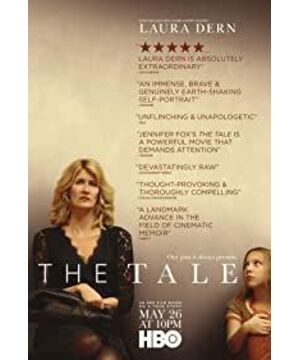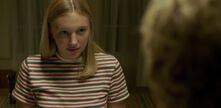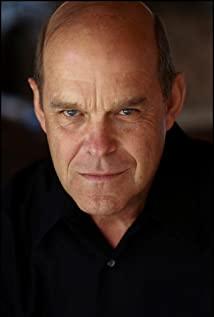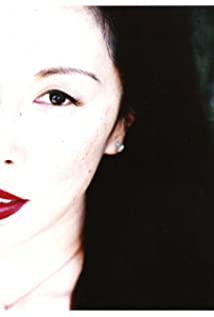The film's narrative approach is captivating, with a composition written by 13-year-old Jenny leading the entire story, while at the same time, because of memory inaccuracies, the narrated scenes are often overturned and recreated, with fragmented clues everywhere.
Jenny herself is a documentary filmmaker, a storyteller, a storyteller, and the film itself is her exploration of her own story. Jenny kept investigating to discover new characters in the story, and kept comparing what the 13-year-old was thinking with what she wrote.
During the investigation, there were many fake interview clips, and the interviewees were all about her and the characters she met when she was 13 years old. These interviews started out as an interrogation of the past in the past, a desire to uncover the veil of the truth step by step, and then gradually turned into a questioning of the past in the present. Desire for "why".
At 13, Jenny was so vulnerable and so strong. She is talented and likable, but lives in a family whose uniqueness and independence cannot be affirmed. Her parents set strict house rules, and there is no intimate connection between her family members. She obviously has outstanding talents and special opinions, but she can only share them with herself and write them quietly in her diary. It's self-evident how excited a child growing up in such an environment would be to be recognized by an adult she loves; but at the same time, this affirmation made her trust Bill and Jane too much, so she got caught up in it and lost her protection own consciousness.
While watching the movie, hearing Jenny take her relationship with Bill so seriously, I even began to wonder if she could be considered a more mature individual? And does her sexual behavior with Bill not count as sexual assault on a spiritual level? The further down you look, the more inventive the answer becomes. The reason she hides the nature of the relationship and emphasizes that it's a love affair is because she thinks she's being taken seriously as an adult, and that she thinks all the decisions she's making now are the result of her own ability Take control of your life.
In fact, little Jenny herself gradually realized that these things were not what she wanted, or should not happen. She had questioned Bill's views from the moment she learned of Bill's total denial of marriage; when she found herself exhausted from the affair, she calmly offered to break up. However, when the current Jenny questioned the 13-year-old her, she proudly said that it was not her who broke down, but Bill; it was not her who lost, but Bill. She thinks she's mature, she has her self-esteem, she's going to be a hero, a winner, so in this story, she must not be seen as an impulsive, ignorant, weak victim.
Until the end, Jenny ruthlessly questioned Bill at the award ceremony one after another, why he sexually assaulted her and why she hurt her when she was young. That was the moment when she truly faced the sexual assault and reconciled with herself.
It's worth noting that Jane's importance in the story isn't just because she's the one who instigated Bill to start this life, but the reason behind her fanaticism about it. The 13-year-old Jenny asked her desperately, why Jane was indifferent when she saw Jane as the only one who could save her? Jane only said one sentence, "No one saved me".
The reason this film is special is that it does not emphasize the helplessness of the victim and the hate of the perpetrator from an outsider's point of view (politically correct) like most of the society, but from the perspective of the victim himself. Sexual assault story. It showcases a process of self-identification and self-discipline that is extremely important to the mental health of every individual who has been sexually assaulted.
Finally, I still want to copy the poems written by 13-year-old Jenny.
We had a dream,
A beautiful dream.
We were going to fill the emptiness in each of our souls.
But as so many dreams,
Reality does not hold true.
The pretty colors and ribbons,
I had decorated Bill and Mrs. G with,
Disintegrated, and they were left naked.
The overwhelming pain of weakness,
The sickening fact of someone,
Who once seemed so strong,
Only to find that the strength is only in their words.
View more about The Tale reviews











